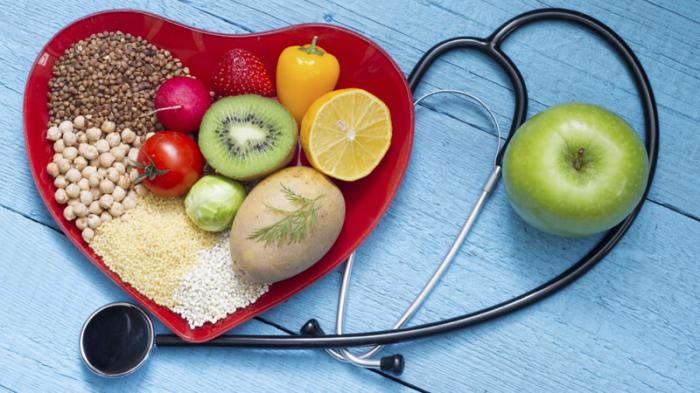How Long Does It Take To Lower Cholesterol On A Vegan Diet

Cholesterol levels are directly related to heart health, which is why it's so important to make sure your cholesterol is in a healthy range; The Centers for Disease Control and Prevention (CDC) reports as a trusted source that in 2012, 78 million adults in the United States had high levels of low-density lipoprotein (LDL), or "bad" cholesterol. This organization also states that people with bad cholesterol are more at risk of heart disease.
Cholesterol is a waxy, fatty substance found in the body that travels through the bloodstream. Cholesterol travels through your body with lipoproteins, which are soluble proteins that carry fats through the arteries.
If the body has too much bad cholesterol, its excess amount is deposited along the walls of the blood vessels and puts you at risk of heart attack and stroke.
High-density lipoprotein (HDL), also called "good" cholesterol, returns excess cholesterol from tissues and blood vessels to the liver. Good cholesterol protects you from heart disease. So unlike bad cholesterol, the higher the level, the better.
Triglycerides are another type of fat that can build up in the body. High levels of triglycerides combined with low levels of good cholesterol also increase the risk of heart disease and diabetes.
The required amount of cholesterol in the body:
Total cholesterol
Good: 199 milligrams per deciliter (mg/dL) or less
Limit: 200 to 239 mg/dL
High: 240 mg/dL or higher
bad cholesterol "LDL"
Good: 100 mg/dL or less
Limit: 130 to 159 mg/dL
High: 160 mg/dL or higher
"HDL" good cholesterol
Good: 60 mg/dL or higher
Low: 39 mg/dL or less
triglyceride
Good: 149 mg/dL or less
Limit: 150 to 199 mg/dL
High: 200 mg/dL or higher
Sometimes you may have high cholesterol but you don't know about it, that's why regular checkups are very important; The American Heart Association recommends that all adults starting at age 20 have their blood cholesterol checked every 4 to 6 years; More frequent examinations may also be needed based on treatment plans and other risk factors.
Ways to reduce cholesterol and improve health
changing life style
Making healthy lifestyle changes is one of the most important ways to lower cholesterol and improve overall health.
According to Dr. Eugenia Gianos, a cardiologist at NYU Langone Medical Center, you can lower your cholesterol levels by up to 20% through dietary changes and lifestyle improvements, but it can vary from person to person. He says: "We give patients three months to see the effect of dietary changes."
diet
To help lower bad cholesterol, reduce saturated fat in your diet and increase dietary fiber. Saturated fats increase the production of bad cholesterol in your body. Reduce saturated fat to less than 10 grams per day and eat 30 grams of fiber per day, 10 grams of which should be insoluble fiber, says Dr. Giannos.
Both doctors say that plant-based diets can help lower cholesterol and improve overall heart and body health. They recommend the DASH diet and the Mediterranean diet, as both emphasize high levels of fiber and healthy fats.
The DASH diet includes:
Lots of fruits, vegetables and whole grains
Fat-free or low-fat dairy products
Lean proteins (such as fish, soy, chicken, beans)
Healthy fats (eg, nuts, seeds, vegetable oils)
Limited salt, sugar, processed foods, red meat
Mediterranean diet includes:
Lots of fruits, vegetables and whole grains
Healthy fats like nuts and olive oil instead of unhealthy fats like butter
Limited salt (substitute herbs and spices)
Mainly fish and chicken for protein, red meat in moderation (several times a month)
Dr. Goldberg explains that he looks at patients as a normal person and tries to understand why their cholesterol is high. He says many of his patients are busy and often eat fast food out. In this case, Dr. Goldberg recommends that people focus on eliminating processed foods and refined sugars.
Sport
Physical inactivity can increase the level of LDL and decrease the level of HDL. Aerobic exercise helps your body raise its HDL levels, which are important for protecting you against heart disease.
In addition to weight loss benefits, exercise also has cardiovascular benefits. Dr. Gianos says: To lose weight, we recommend 60 minutes of moderate aerobic exercise per day.
Activities such as brisk walking, cycling, dancing, gardening, swimming, jogging and aerobics all give you cardio benefits.
If you want to lower your cholesterol through lifestyle changes, you need to exercise regularly. Dr. Goldberg says you can't just do it for a few months and then quit; He also notes that some people are genetically programmed to produce more cholesterol than others. Diet and exercise may not be enough for these people based on cholesterol levels and global risk of heart disease.
برای نمایش آواتار خود در این وبلاگ در سایت Gravatar.com ثبت نام کنید. (راهنما)






















































ایمیل شما بعد از ثبت نمایش داده نخواهد شد